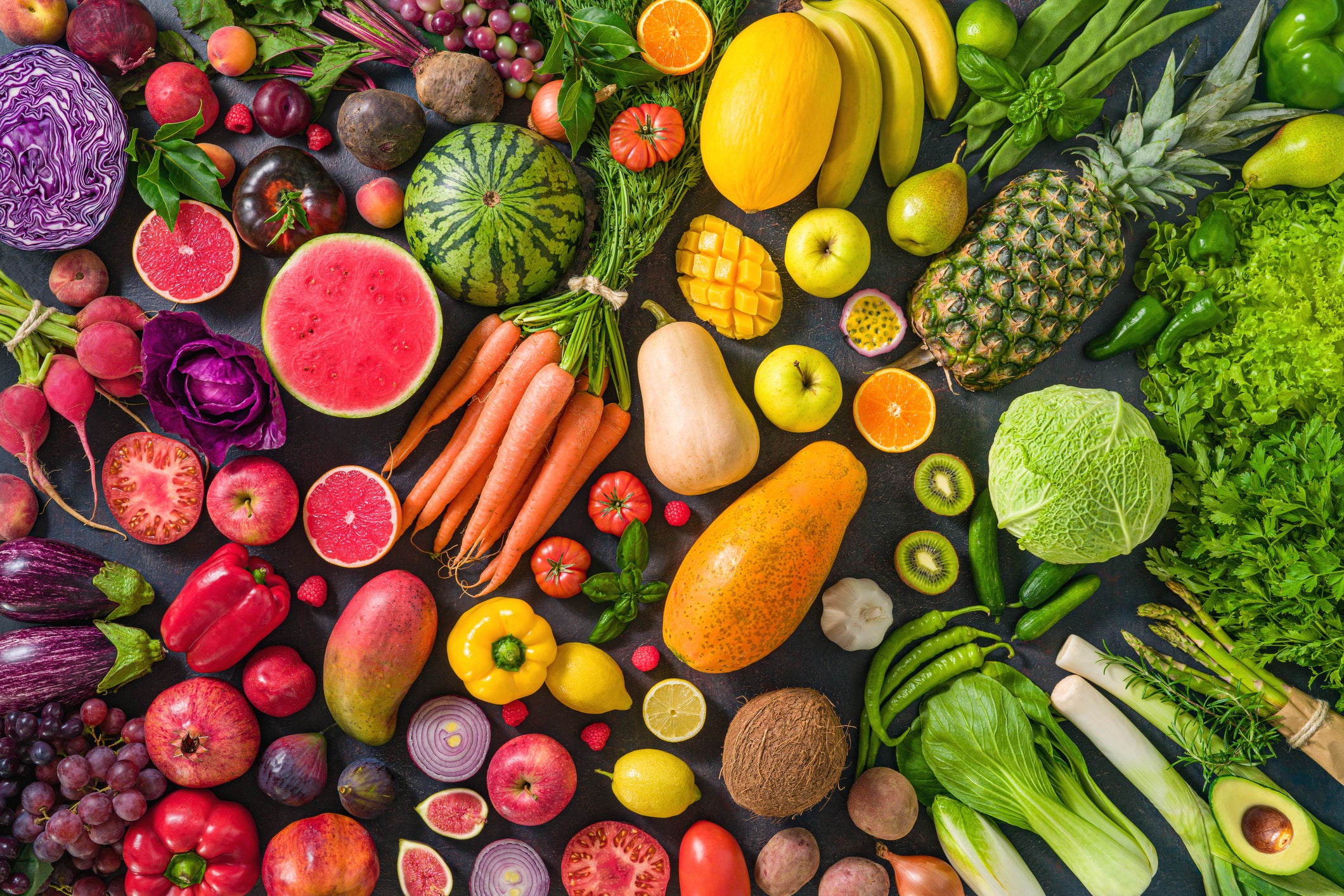Changing what we eat could save 15 million lives every year and help bring the planet back from the brink of climate disaster, according to a new study.
The 2025 EAT-Lancet Commission, made up of leading international experts in nutrition, climate science, economics, and policy, warns that food production and consumption are now one of the biggest threats to human and planetary health.
But it also concludes that a shift to a mostly plant-rich, flexible global diet could slash premature deaths, ease inequality, and curb environmental destruction.
The findings suggest that following the so-called Planetary Health Diet – built around grains, fruits, vegetables, nuts and legumes, with moderate amounts of dairy, fish, poultry and minimal red and processed meat – could cut the risk of premature death by 27 per cent.
Adoption of such a diet worldwide would prevent about 15 million early deaths every year while greatly reducing rates of chronic illnesses like type 2 diabetes, cardiovascular disease, cancer, and neurodegenerative conditions.
“Food systems are a major contributor to many of the crises we face today, and at the same time, the key to solving them,” said Shakuntala Haraksingh Thilsted, commission co-chair and director for nutrition, health and food security at the Consultative Group on International Agricultural Research.
“The evidence laid out in our report is clear: the world must act boldly and equitably to ensure sustainable improvements. The choices we make today will determine the health of people and the planet for generations.”

The global food system contributes around 30 per cent of greenhouse gas emissions and is the leading driver of planetary boundary transgressions, including biodiversity loss, freshwater depletion, land-use change and nutrient pollution.
Although enough calories are produced to feed everyone, 3.7 billion people worldwide do not have reliable access to healthy food, a clean environment or a living wage.
The commission warns this crisis of inequity and environmental harm is undermining human health and the resilience of the planet itself.
The diets of the wealthiest 30 per cent of the world’s population are responsible for around 70 per cent of the overall environmental pressures caused by food systems, while nearly half of the global population cannot afford a healthy diet.
Millions of children remain in agricultural labour and 32 per cent of food workers earn below living wages, often under unsafe conditions.
“Equity and justice are not optional – they are prerequisites for resilient and sustainable food systems,” said Christina Hicks, commissioner and professor of social science at Lancaster University.
“Without addressing entrenched inequalities within current food systems, no transformation will be complete or lasting.”
The diet proposed by the commission is not fully vegan, but plant-rich and flexible. It includes about 150 grams of whole grains per day, 500 grams of fruit and vegetables, 25 grams of nuts, and 75 grams of legumes.
This plant-rich foundation is complemented by modest amounts of animal-sourced foods, such as up to 200 grams of red meat a week, 400 grams of poultry, 700 grams of fish, and three to four eggs per week.
It also allows one serving of dairy per day – up to 500 grams of milk, yoghurt or cheese – while limiting added sugars, saturated fats and salt.

“The Planetary Health Diet is not a one-size-fits-all approach,” explained Walter C Willett, commission co-chair and professor of epidemiology and nutrition at Harvard TH Chan School of Public Health.
“It allows for cultural diversity and individual preferences, providing flexibility within clear guidelines to achieve optimal health and sustainability outcomes worldwide.”
The commission estimates that current food systems impose hidden costs worth $15 trillion annually through healthcare burdens and environmental damage. Transforming diets and production practices would require $200-500 billion in annual investment, but would deliver returns of more than $5 trillion per year in avoided health costs, increased productivity and reduced environmental harm.
The commission recommends measures such as combining taxes on unhealthy foods with subsidies for fruits and vegetables, supporting agriculture focused on legumes, grains and nuts, and improving school meal programmes to encourage healthier and more sustainable diets.
“Transforming food systems is a significant environmental and social challenge, but it is a precondition for us to have a chance of returning within a safe climate system and a healthy planet,” said Johan Rockström, commission co-chair and director of the Potsdam Institute for Climate Impact Research.
“How we produce and consume food affects the air we breathe, the water we drink, the soil that grows our crops, and the health and dignity of workers and communities. Addressing these interconnected problems requires systemic and coordinated global action.”
The commission warns that food systems are the primary cause of five of the nine planetary boundaries being breached. But it stresses that sustainable production methods such as regenerative agriculture, cutting food waste by half, and halting agricultural conversion of natural ecosystems could together restore planetary health while feeding 9.6 billion people by 2050.
“Everybody has a part to play in how food systems are reshaped,” Lancet editor-in-chief Richard Horton and consulting editor Tamara Lucas wrote.
“Now that we have the knowledge and scientific evidence, it is a collective responsibility to act to save and repair the planet’s systems before it is too late, and we call on all to join us in this revolution. The reward of food justice for all will be restored balance of Earth’s natural systems, and the nourishing sustenance that is healthy and delicious food.”







